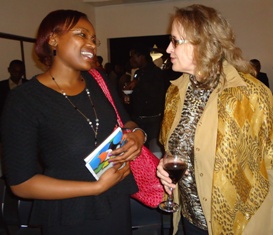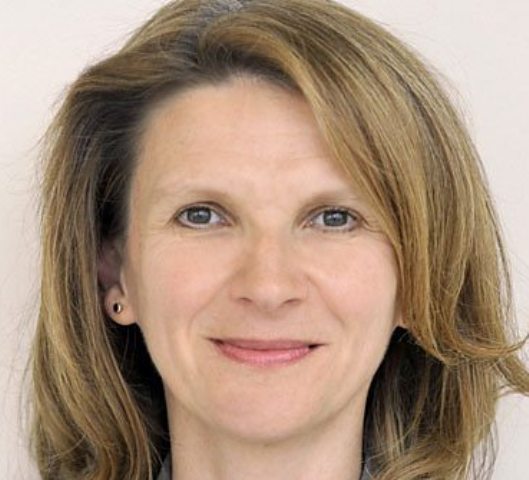By Daisy Nandeche Okoti with Ogova Ondego
Published August 10, 2013
 That almost every living person listens to radio in Kenya is a foregone conclusion; radio is not just the most ubiquitous but also most influential medium of communication that one listens to in one’s living room, bedroom, car, public service vehicle, work place and even on one’s cell phone and computer. From a single station in 1927, Kenya now has 117 radio stations in 2013, a testament to the popularity of the ‘talking box’.
That almost every living person listens to radio in Kenya is a foregone conclusion; radio is not just the most ubiquitous but also most influential medium of communication that one listens to in one’s living room, bedroom, car, public service vehicle, work place and even on one’s cell phone and computer. From a single station in 1927, Kenya now has 117 radio stations in 2013, a testament to the popularity of the ‘talking box’.
According to a radio survey by Ipsos Synovate research company, five media groups dominate the radio market: Royal Media Services (25%), Radio Africa Group (15%), Kenya Broadcasting Corporation (10%), Nation Media Group (7%) and Capital Radio Group (5%).
The emergence of countless radio stations broadcasting on Frequency Modulation (FM) medium that came in the wake of political pluralism and media liberalisation in 1992 was considered a breath of fresh air because there would be a variety of radio stations to listen to and they would not have to rely on the then highly government monopolised Kenya Broadcasting Corporation (KBC). But this ‘breath of fresh air’ turned out to be short-lived as one commercial radio station after another became liberal with the content being broadcast and the kind of people employed as presenters.
But most of these presenters came not so well armed for the radio job and can make you gnash. The rush for presenters made media owners settle for what was less than the right people. The unforeseen consequence was the compromise of the media dignity. Very few of these radio presenters pay attention to professional standards and ethics and as such they end up antagonising the general public by giving them wrong or biased information. The effect of such information is an ignorant public. An example of such a presenter is a woman referred to as the ‘queen of radio’ in Kenya supposedly for her not-so-well informed ‘boldness’ on air. She has been dragged to court several times due to her ‘loose’ talk. Among the politicians she has locked horns with are former Assistant Minister for Housing Bishop Margaret Wanjiru, former Constitutional Affairs Minister Martha Karua and former Special Programmes Minister Esther Murugi.
Although some of these FM stations discuss serious national, social, economic and development issues, a majority of them, especially those that wrongly try to ape other cultures, continue to taint the reputation of FM radio stations.
Among the national stations, Milele FM and Radio Citizen stand out for the good content and specialised attention they give to each show they present. It is very easy to notice that they take their time to gather and present wholesome news to their audience. Generally, anyone who takes time to listen to a programme on these stations gets value for their time.
One of the first flaws in the operation of FM radio stations in Kenya, as already illustrated above, is irresponsible journalism that results from non-regulation and lack of training.
 “Studies by the Kenya National Commission on Human Rights and other bodies indicated sections of the media for carrying content that inflamed ethnic hatred immediately before the post-election violence in 2007”, writes Bill Odidi of English Service of KBC Radio in ‘The Transformation of Media, Technology and Communication’, a chapter in Incorporating Oral Culture in Education for Development: A Kenyan-German Alumni Denkfabrik publication. “Regulation is necessary to instill some discipline and professionalism into the practice of journalism.”
“Studies by the Kenya National Commission on Human Rights and other bodies indicated sections of the media for carrying content that inflamed ethnic hatred immediately before the post-election violence in 2007”, writes Bill Odidi of English Service of KBC Radio in ‘The Transformation of Media, Technology and Communication’, a chapter in Incorporating Oral Culture in Education for Development: A Kenyan-German Alumni Denkfabrik publication. “Regulation is necessary to instill some discipline and professionalism into the practice of journalism.”
But the ‘discipline’, ‘professionalism’ and ‘journalism’ that Odidi refers to cannot apply to the ‘actors’, ‘stand up comedians’ and other ‘celebs’ hired to work for radio stations without training in journalism. Where ‘mass communication’ and ‘journalism’ schools exist, Odidi contends “there is also little or no regulation of colleges that train journalists. The quality of journalism training is poor because of a lack of common standards and because there are few trained and experienced lecturers.”
‘Fake English accents’ adopted by presenters is yet another shortcoming of many radio stations. These accents send the wrong message to the young and impressionable people. One of the messages being sent with this kind of talk is that, other accents are superior to our own vernacular-flavoured English.
Language choice and use in many of these FM radio stations is also a major issue. National radio stations normally settle on either English or Kiswahili as their languages of communication but many presenters don’t really pay attention to the language use, grammar or proper tenses. It is no longer possible to listen to an FM radio station with the intention of bettering one’s own language proficiency. Language is the core material in radio presentation but presenters take that for granted. The effect of this is already noticeable because more and more young people are down playing the importance of communicating properly in formal English or Kiswahili, both official languages in Kenya.
Perhaps nothing illustrates the triviality of what FM radio stations broadcast better than cartoonist Godfrey Mwampembwa (GADO)’s ‘Nairobi Morning Rush Hour’ in which the main subject is illicit sexual affairs; all the radio stations in Nairobi broadcast the same subject as captured by GADO!
Many presenters rarely draw the line between what is serious and what is not. When it comes to giving advice, they are ‘experts’ at everything; from nutrition to relationships to health. But whatever information they give on these issues carries no weight as they are not qualified to give advice of this kind.
While radio is supposed to inform, educate and entertain, the only duty of many radio stations in Kenya appear to be mere entertainment, the ability of presenters to convert a matter of life and death into a joke being extraordinary: A young girl, for instance, calls a presenter to seek advice on what to do about a married neighbour who is trying to hit on her. But the advice she gets from the radio presenter-turned counselor is strange. The presenter asks her whether she is using any kind of contraceptive. When she says yes, she is told, “Never to go to bed with him without a condom!”
How many other young girls were listening to that programme? And how many of them got the wrong idea? The possibility is that, another girl somewhere was in a similar situation and had decided to courageously walk out of it but when she hears her favourite radio presenter giving advice to the effect that it is not wrong to engage in such an activity, she is led astray.
 It is important radio presenters be reminded that, their ‘celebrity’ status gives them a standing in the decisions that most people make, especially the younger ones. Anything that hits the airwaves has the ability to make or break someone and therefore it should be chosen and delivered carefully; the airwaves are not the place to make expensive jokes or hold meaningless mumbo jumbo in the name of entertainment.
It is important radio presenters be reminded that, their ‘celebrity’ status gives them a standing in the decisions that most people make, especially the younger ones. Anything that hits the airwaves has the ability to make or break someone and therefore it should be chosen and delivered carefully; the airwaves are not the place to make expensive jokes or hold meaningless mumbo jumbo in the name of entertainment.
Radio programme controllers would do well if they reviewed their goals and objectives in relation to the well-being of society and the role of the media. Radio presenters on their part need to understand the gravity of what they say and thus say it carefully. As for the listeners, it’s up to them to decide what is good for them.





